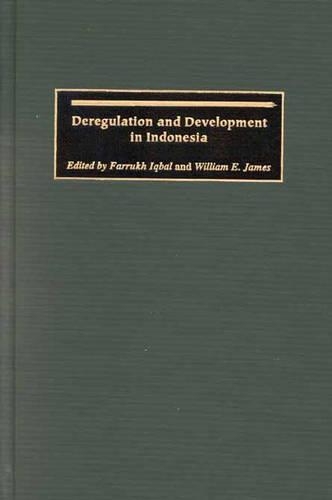
Deregulation and Development in Indonesia
(Hardback)
Publishing Details
Deregulation and Development in Indonesia
By (Author) Farrukh Iqbal
Edited by William E. James
Bloomsbury Publishing PLC
Praeger Publishers Inc
28th February 2002
United States
Classifications
Tertiary Education
Non Fiction
Development economics and emerging economies
338.9598
Physical Properties
Hardback
224
Description
Of the developing nations of East Asia, Indonesia came relatively late to liberalizing its trade and investment regime. Only in the mid-1980s, when it was clear that oil revenues alone would not suffice and that a new engine of growth was needed, did the country's government swing behind a systematic deregulation effort. Tariffs were cut, non-tariff barriers were lowered, foreign investment restrictions were reduced, export promotion incentives were enhanced, and various financial sector regulations were eased. All this combined to spark a labor-intensive export-led economic boom that was accompanied by an expansion in wages and employment and a boost in productivity. This book documents how Indonesia truly became part of the East Asian miracle story starting in the mid-1980s. Destined to become a leading case study of export-led development in Indonesia, this book grew out of a World Bank/Indonesian Economic Society Symposium held in Jakarta.
Author Bio
FARRUKH IQBAL is Lead Economist and Regional Coordinator for East Asia at the World Bank Institute. WILLIAM E. JAMES is Chief of the Research Division and Research Professor of the International Centre for the Study of East Asian Development, based in Japan.
